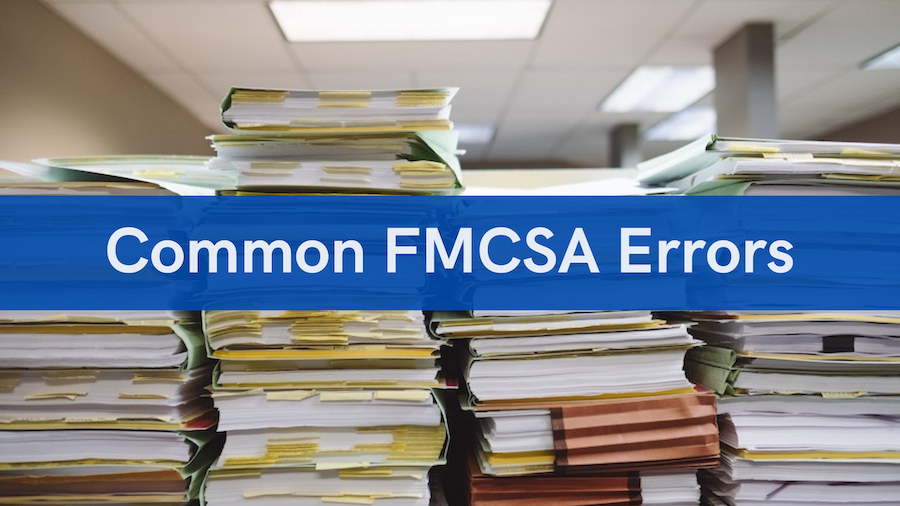As a trucking company, it’s crucial to stay up-to-date on all the regulations in the industry. These regulations cover everything from how many hours a driver can be behind the wheel, to the maintenance of vehicles, to record retention requirements, to a whole lot more.
While compliance is a must, it’s not uncommon for trucking companies to get hit with fines for common mistakes. In this blog, we’ll go into the regulations that trucking companies get fined for the most and offer some tips on how to avoid these costly penalties. By understanding the regulations and putting best practices into place, you can keep your company in compliance and protect your bottom line.
Common Costly Violations
It’s important to be familiar with all the regulations that apply to your business. Some of the most common regulations that trucking companies need to follow include:
Hours of service: One of the most common regulatory violations that trucking companies are fined for is non-compliance with hours of service regulations. This can include drivers working beyond the maximum allowable hours without taking required rest breaks, or not accurately recording their hours of service in logbooks.
Vehicle maintenance: Another common regulatory violation that can result in fines for trucking companies is failing to properly maintain their vehicles. This can include not performing required maintenance tasks, such as annual inspections and tire replacements, or failing to make timely repairs to defective equipment like lights or air systems.
Driver qualification: Trucking companies can also be fined for hiring drivers who do not meet the required qualifications, such as not having a valid CDL or not meeting age or physical fitness requirements. As well as not keeping accurate medical information for drivers.
Driver Qualification File Violations (DQ Files)
- Failure to conduct required background checks: Companies are required to conduct background checks on all drivers before they are hired.
- Failure to maintain medical certification: Drivers must have a current medical certificate on file in their DQ File at all times.
- Failure to maintain drug and alcohol testing records: Companies must have records of all drug and alcohol tests conducted on their drivers, including both pre-employment tests and random tests.
- Failure to maintain records of violations and accidents: Companies must have records of any moving violations or accidents involving their drivers.
- Failure to maintain records of driver hours of service: Companies must have records of the hours that their drivers have worked and the hours they have spent driving.
By maintaining a complete and current DQ File for all drivers, companies can help ensure that drivers are qualified to operate vehicles safely and in compliance with federal regulations.
Vehicle Maintenance Violations
There are several common vehicle maintenance violations that trucking companies may receive. Some of the most common include:
Lights and reflectors (492k+ violations /year): It’s important that trucks have functioning lights and reflectors, both for the safety of the vehicle and for the visibility of the truck to other drivers.
Brakes (479k+ violations /year): This can include issues with the brake system itself, such as worn or damaged brake shoes, or problems with the way the brakes are calibrated, such as improper brake adjustment.
Tires (197k+ violations /year): Trucks are required to have tires that are in good condition, with sufficient tread depth, and free of cuts or bulges. Trucks may also be cited for having mismatched tires, which can affect the vehicle’s stability and handling.
Operating without proof of inspection (176k+ violations /year): Trucks are required to properly secure their loads to prevent shifting or falling during transport.
Windshield Wipers Inoperative or Defective (89k+ violations /year): Trucks are required to be kept in a clean and orderly condition, both inside and out.
How Companies Can Avoid Costly FMCSA/DOT Violations
By being proactive and addressing these common mistakes, you can help prevent missed violations and keep your company running safely and compliantly.
Regular inspections and maintenance: One of the most common mistakes that companies make is failing to stay on top of regular inspections and maintenance. This can lead to missed violations, as problems may go undetected until they become serious enough to trigger a violation.
Don’t skimp on training and resources: Proper training and resources are crucial for ensuring compliance and safety within your fleet. If your drivers or maintenance staff are not adequately trained or equipped, it can lead to missed violations and potentially hazardous situations.
Prioritize communication: Poor communication within your company can also lead to missed violations. If different departments or individuals are not communicating effectively, important information and updates may not be shared, leading to missed violations and potential safety issues.


